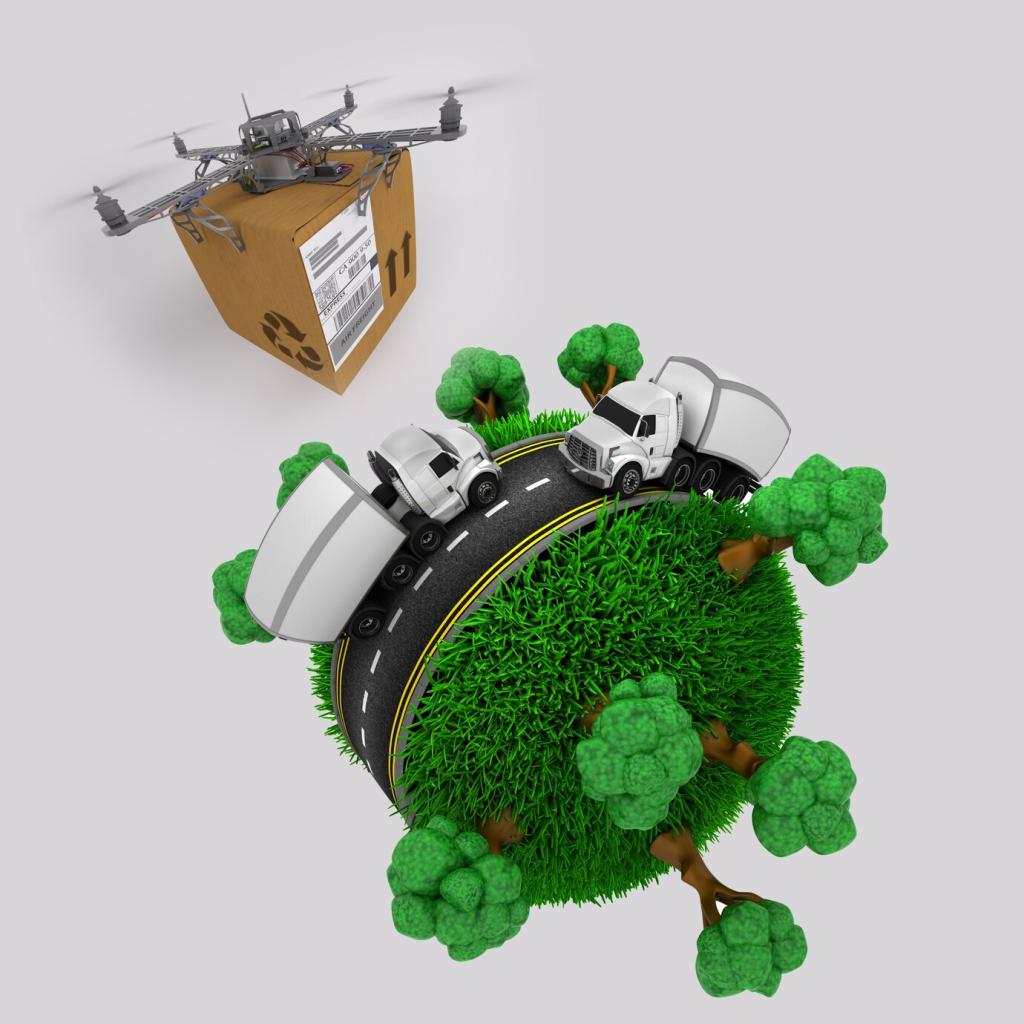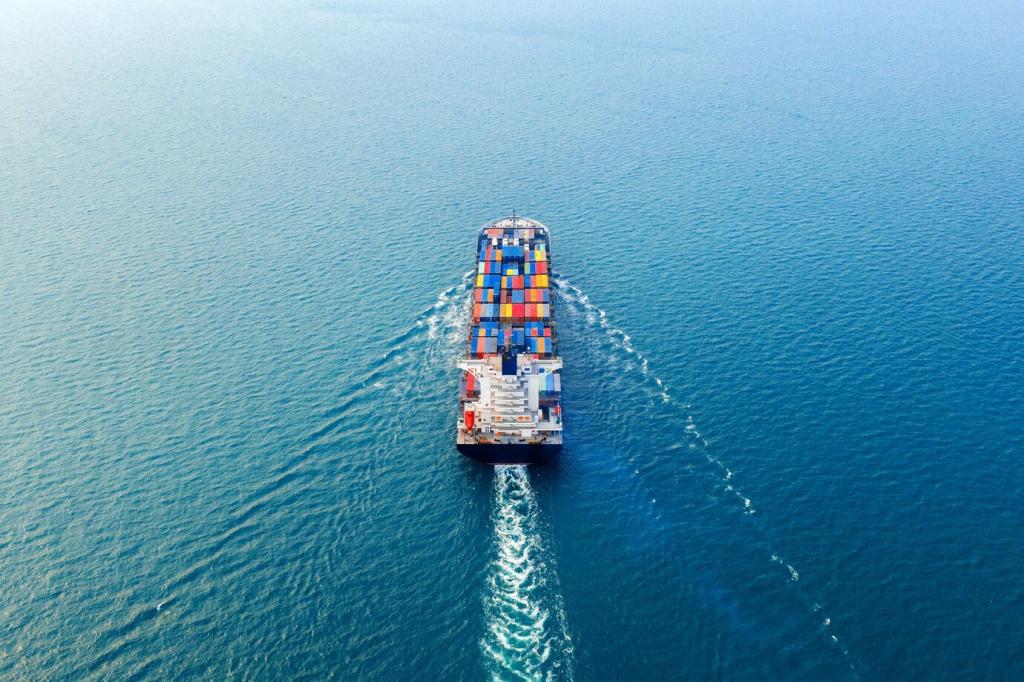Alternative Fuels in Maritime Logistics
The global maritime industry is striving to reduce its environmental impact by adopting innovative fuel solutions. As pressure mounts from international regulations and sustainability goals, companies are exploring alternative fuels to minimize emissions, enhance efficiency, and secure a cleaner future for marine transport. This page delves into the current landscape, the range of alternative fuels available, the challenges faced, and the future prospects for green shipping.

The Need for Alternative Fuels in Shipping

Regulatory Pressures and Environmental Concerns
Maritime logistics faces heightened scrutiny from regulatory bodies like the International Maritime Organization (IMO), which has set ambitious targets to cut greenhouse gas emissions. These regulations push companies to rethink their reliance on heavy fuel oil, known for its high sulfur and carbon content. Beyond regulations, the growing evidence of environmental degradation linked to shipping emissions, such as air pollution and ocean acidification, has galvanized both the public and industry stakeholders. Embracing alternative fuels is crucial for compliance and for preserving the marine ecosystem for future generations.

The Limitations of Conventional Marine Fuels
Heavy fuel oil and marine diesel have long powered the global shipping fleet, but their environmental drawbacks are increasingly untenable. Conventional fuels contribute vast amounts of carbon dioxide, sulfur oxides, and particulate matter to the atmosphere, harming human health and contributing to climate change. With stricter emissions standards in key ports and shipping lanes, the limitations of traditional fuels have become obvious. Overcoming these challenges demands a strategic pivot to cleaner options that not only meet regulatory demands but also anticipate evolving societal expectations.

Public Perception and Market Drivers
The influence of public perception on maritime practices cannot be underestimated. Consumers and businesses alike are demanding more transparency and responsibility throughout the supply chain. As a result, market leaders now recognize that investing in alternative fuels is not merely about compliance but also about brand reputation and long-term competitiveness. Sustainable shipping options are fast becoming a key differentiator, prompting companies to prioritize alternative fuels as part of their core value proposition.

Liquefied Natural Gas ranks among the most widely adopted alternative fuels in shipping today. Its appeal lies in its ability to significantly lower emissions of sulfur oxides, nitrogen oxides, and particulate matter compared to traditional marine fuels. Ships powered by LNG are increasingly common on major routes, especially in Europe and Asia. However, LNG is primarily a transitional fuel, as it still releases carbon dioxide, albeit less than conventional options. The infrastructure for LNG bunkering is expanding, but high initial investments are required, creating challenges for widespread adoption. Despite these hurdles, LNG is viewed as a pragmatic step towards more radical decarbonization in the future.

Biofuels, derived from plant and waste materials, present a renewable alternative that can be blended with or substitute conventional marine fuels. These fuels offer significant reductions in lifecycle greenhouse gas emissions, depending on their source and production methods. Advanced biofuels, such as those derived from algae or waste oils, show promise for scalability without encroaching upon food resources. Additionally, wind and solar technologies are being increasingly integrated into vessel designs as supplementary power sources, supporting energy efficiency goals. Despite their promise, biofuels still face challenges related to cost, supply chain logistics, and compatibility with existing marine engines.

Hydrogen and ammonia are at the forefront of discussions about the future of zero-emission shipping. Hydrogen offers the potential for emission-free propulsion when produced using renewable energy and used in fuel cells. Similarly, ammonia, which is hydrogen-derived, can be combusted in modified engines with zero carbon emissions at the point of use. Both fuels, however, pose technical and safety challenges, including storage issues and the need for new bunker infrastructure. Investing in these solutions requires significant research and cross-industry collaboration, but their adoption could fundamentally transform maritime logistics and pave the way for a carbon-neutral shipping industry.
Overcoming Challenges to Adoption
A major barrier to the large-scale use of alternative fuels is the lack of global infrastructure. Many ports do not currently support the bunkering of LNG, hydrogen, or ammonia, which creates operational uncertainties for shipowners considering fleet conversions. The logistics of transporting, storing, and distributing new fuels often require entirely new systems. The development of standardized procedures and global infrastructure is critical if alternative fuels are to compete with conventional options on reliability and convenience. Until then, adoption tends to be concentrated in specific regions or niche markets where local support is strongest.

